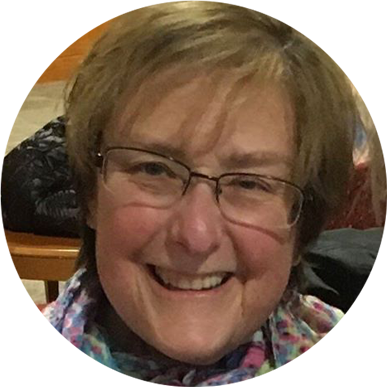“Once I had the sarcoma, I said: you need to take it easy. I try. I want it on my tombstone: She really tried.”
When were you diagnosed?
I was 14. What started out as a cold and congestion turned out to be non-Hodgkins lymphoma; I had a tumor in my mediastinum–the chest cavity–that wasn’t allowing blood to get through. My arms, legs and face turned red, and I couldn’t swallow food. When my pediatrician took a chest x-ray, I was sent right away to the emergency room. That’s when I had a biopsy. It was 1977.
My mother was ahead of her time. She was a very strong advocate and probably the doctors’ nightmare, because she wanted to know every detail. I didn’t know what was happening; I just knew I was sick.
You were in the eighth grade. Did you tell your friends about your condition?
Yes, I had one or two friends who were protective of me and visited me in the hospital. I had two years of treatment–cobalt radiation aimed at my whole chest and chemotherapy consisting of vincristine, methotrexate, asparaginase and adriamycin. Back then we didn’t have anti-nausea drugs and no ports, so my veins were completely depleted. I remember there would be 20 of us, adults and children together, in the waiting room with no TV, so you could hear people screaming. When my hair fell out, I wore a wig, but it was uncomfortable, and kids at school would pull it off. I think I deserve a Make-A-Wish, which back in 1977 didn’t exist.
By eleventh grade, treatment was over, I was told I was in remission, and I became anorexic. I needed to get some control over my body, so I stopped eating. The situation turned around when a psychiatrist said: If you don’t start eating, I’ll put you back in the hospital. I didn’t want that. I headed to Vanderbilt University to major in psychology. My initial thought was that I could help kids with cancer, but I found out it was too difficult. I became a social worker focused on kids who have other problems. I love it.
You headed into adulthood.
Yes, my life continued pretty normally, quite honestly. My thyroid shut down when I was 19, and I take medication, but I had no real understanding of late effects and why I had to keep going back to an oncologist for check-ups. My mother kept pushing me. I had a lot of bronchitis and colds, and I would get so sick compared to other people.
I got married and had no trouble conceiving. My two children were born in 1993 and 1995. But soon things really hit the fan.
You experienced late effects?
In 1999, I began to have cardiac symptoms. I always went to the gym everyday, but I started getting dizzy. I was diagnosed with heart failure and cardiomyopathy; my heart muscle was weakened. Then in 2001, I was diagnosed with early-stage breast cancer–ductal carcinoma in situ (DCIS). My response was that, since I never wanted chemotherapy again, I’d have mastectomies. I had to have the surgeries done separately, which meant recovering each time. You weren’t able to have a conversation about going flat, as happens today, so I have expanders with saline implants.
I started developing what were thought to be panic attacks, but ended up being bradycardia–a slower-than-normal heart rate. I had a pacemaker put in, and because of my radiated skin, what should have taken an hour took four hours. Then my neck started hurting, and a CT scan revealed a tumor the size of a mango. I was diagnosed with sarcoma and had surgery to remove it, along with half my neck. I couldn’t have traditional radiation, so I had proton-beam therapy at Memorial Sloan-Kettering. I lived in a hotel in New Jersey.
What happened then?
I went home, went on disability and then found out the cancer had metastasized; I had lung metastases throughout my chest. The timing worked out, because by 2015 immunotherapy had proven effective. With the theory that my new cancer was radiation-induced, it might respond to the newest treatment for melanoma. I began a clinical trial of Yervoy and Opdivo, and my lung metastases disappeared–and I had minimal side effects.
After 15 years of always something, and no downtime, life has been somewhat uneventful. I’m really happy. I wake up in the morning, and my neck hurts, and I can’t work that much, but my life doesn’t revolve around doctors. Once I had the sarcoma, I said: you need to take it easy. I try. I want it on my tombstone: She really tried.
Can you offer advice to people who have recently been diagnosed?
I’m healthy now, and that’s what’s most important. I work out every day, and I eat well. I do whatever I can. Between college and when I developed the heart condition, I worked out a lot. I think it helped me. No junk food; I never did that.
I would tell people they have to advocate for themselves and get second opinions. And you have to be able to trust your doctor. Ask questions. Don’t just say yes to everything.
